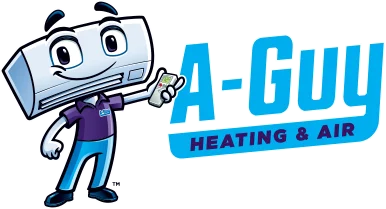Heat pumps play an essential role in maintaining comfort in homes, particularly in Darien’s varying weather conditions. Known for their efficiency, heat pumps are a practical choice for both heating and cooling needs. However, like any complex piece of machinery, they can encounter issues over time, one of the most mysterious being a buzzing sound. Understanding why your heat pump makes such sounds can help you prevent minor issues from escalating into significant problems, ensuring that your system runs smoothly and efficiently throughout the year.
Buzzing sounds coming from heat pumps are not just a minor annoyance; they can signal underlying issues that may need immediate attention. These sounds might result from several causes, including electrical issues, refrigerant problems, or mechanical malfunctions. Our technicians are skilled in identifying and resolving these kinds of issues, which are crucial in maintaining your home’s comfort and energy efficiency.
Common Causes of Buzzing Sounds in Heat Pumps
Identifying why a heat pump might be buzzing is the first step in resolving the issue. Here are some common causes:
– Electrical Issues: Buzzing sounds often stem from electrical problems within the unit, such as loose wiring or faulty components like capacitors and relays.
- Loose wiring or connections can be dangerous, potentially leading to short circuits or even a fire if not addressed promptly.
- Components such as capacitors can fail, leading to noise as the system struggles to maintain its operation.
– Refrigerant Problems: Another frequent cause of buzzing sounds is refrigerant-related issues.
- Low refrigerant levels might cause strange sounds as the system strains to compensate, reducing its cooling efficiency
- Refrigerant leaks not only result in noises but also significantly affect the pump’s performance, leading to increased energy usage and costs.
– Mechanical Malfunctions: The mechanical parts of your heat pump, including fan blades and compressors, can also contribute to buzzing sounds.
- Loose parts may vibrate during operation, creating noise that indicates parts are wearing out or are improperly secured.
- A buzzing compressor or motor might suggest internal mechanical issues that, if left unattended, could lead to severe damage.
It’s crucial to address any buzzing sound promptly by scheduling maintenance or repair services with professionals. The earlier these issues are diagnosed, the easier and more cost-effective it will be to fix them. By understanding the common causes, homeowners in Darien can tackle heat pump issues effectively and maintain their systems for a reliable and comfortable home environment.
Diagnostic Approaches
When your heat pump starts making a buzzing noise, it’s time to investigate the source. A few diagnostic approaches can help identify the problem. Begin with a visual inspection. Look for any obvious signs of wear and tear, such as frayed wires or loose components. It’s important to note that some issues may not be visible to the naked eye, so carefully observe anything that looks out of place or unusual.
Listening is also a valuable tool for diagnosing issues. Pay attention to the type of sound and its location. Is it steady, intermittent, or changing in pitch? The characteristics of the buzzing can help determine whether it’s an electrical, refrigerant, or mechanical issue. By honing in on the specifics, you can more accurately describe the problem to our technicians.
For a more thorough examination, rely on professional diagnostic tools. Our technicians use advanced equipment to detect problems that are not immediately visible or audible. These tools are essential to ensure a precise diagnosis and prevent overlooked issues from leading to costly repairs. Professional evaluations provide peace of mind and help keep your system in top condition.
DIY Troubleshooting Tips
While some aspects of heat pump maintenance are best left to professionals, there are simple steps you can take to troubleshoot buzzing sounds. Always prioritize safety by turning off the system before inspecting it. This prevents any accidental harm and allows you to examine the unit without the risk of electrical shock.
– Check for loose components: Secure any parts that may have come loose during operation, like screws or panel doors.
– Inspect the unit: Look for visible signs of damage or anything blocking the fan or compressor. Debris can sometimes cause the unit to make unusual sounds.
– Evaluate when to call a professional: If the issue seems beyond a quick fix, or if you’re unable to pinpoint the cause, it’s best to seek professional help. Ignoring the problem, or attempting extensive DIY repairs, can lead to more significant issues.
Preventative Maintenance Tips
The best way to handle buzzing sounds or any issue is to prevent them before they start. Regular inspections and servicing are essential. Scheduling routine maintenance ensures that all components are in good working order and can help catch potential problems early on.
Keep the area around your heat pump clean and free of debris. Leaves, branches, and other materials can clog the external parts of your system, leading to various operational issues, including buzzing sounds. Keeping the surroundings tidy helps the system operate efficiently.
Seasonal maintenance is another critical aspect of prolonging the life and efficiency of your heat pump. Before winter and summer, make sure to check that all parts are functioning correctly and that the unit is clean. Seasonal changes impose different demands on the system, and being prepared can prevent many problems related to climate adjustments. By adhering to a regular maintenance routine, you can avoid many common issues and enjoy the reliable comfort that an efficiently functioning heat pump provides.
Experience lasting comfort by taking action on your system today. Learn more about our comprehensive solutions for heat pumps in Darien to prevent unwanted buzzing sounds and ensure consistent performance. A-Guy Heating & Air understands the challenges you face and is committed to providing quality care for your home environment. For a quick estimate or to book a service visit, please contact us today.

